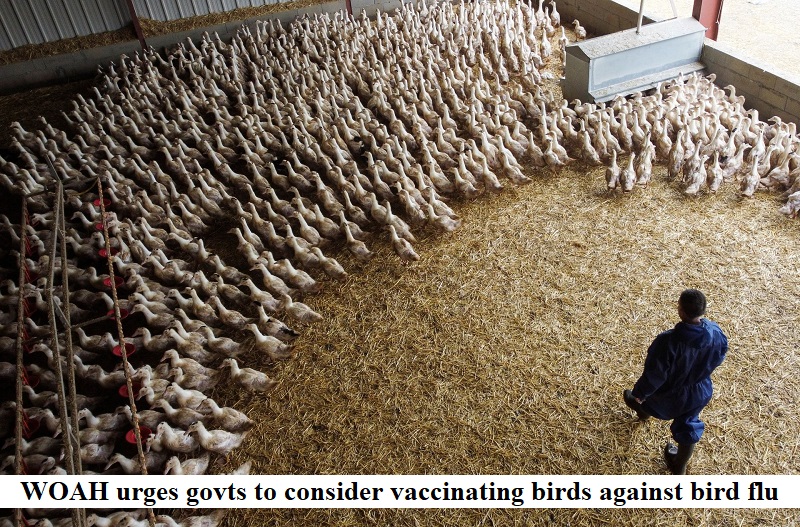
The Director General of the World Organisation for Animal Health (WOAH) has called for global consideration of bird vaccination to prevent bird flu, or avian influenza, from evolving into another pandemic. The disease has already caused the deaths of millions of birds worldwide and has even infected some humans.
In an interview with Reuters, WOAH’s Director General, Monique Eloit, emphasized the importance of learning from the COVID-19 crisis, stating that countries have realized the reality of a pandemic. The interview took place ahead of a five-day general session of WOAH, where discussions on global control of highly pathogenic avian influenza (HPAI) will be held.
Eloit suggested that vaccination should be discussed as a complementary approach alongside systematic culling, which is currently the primary method used to control the disease. France, where WOAH is based, is set to begin vaccinating ducks this autumn, following the implementation of a bird flu vaccination strategy by the European Union’s member states.
However, a survey conducted by WOAH revealed that only 25 percent of its member states are willing to accept imports of products from poultry vaccinated against avian influenza. In the United States, the Department of Agriculture is researching vaccine options to protect poultry from bird flu but continues to view biosecurity measures as the most effective tool in mitigating the virus in commercial flocks.
Eloit emphasized that vaccination efforts should prioritize free-range poultry, particularly ducks, as bird flu is primarily transmitted by infected migrating wild birds. Vaccinating broilers, which account for a significant portion of global poultry output, is considered less sensible.
The potential for bird flu to evolve into a new pandemic has been a concern raised by the Director-General of the World Health Organization (WHO), Tedros Adhanom Ghebreyesus. Although the risk of H5N1 influenza infecting humans remains low, recent reports of infections in mammals such as mink, otters, and sea lions highlight the need for close monitoring. Tedros stressed the importance of preparedness for any changes in the current situation.
While two poultry workers in England recently tested positive for bird flu, there have been no indications of human-to-human transmission, according to the United Kingdom Health and Security Agency. The individuals were asymptomatic and tested positive during routine screening.

Post Your Comments